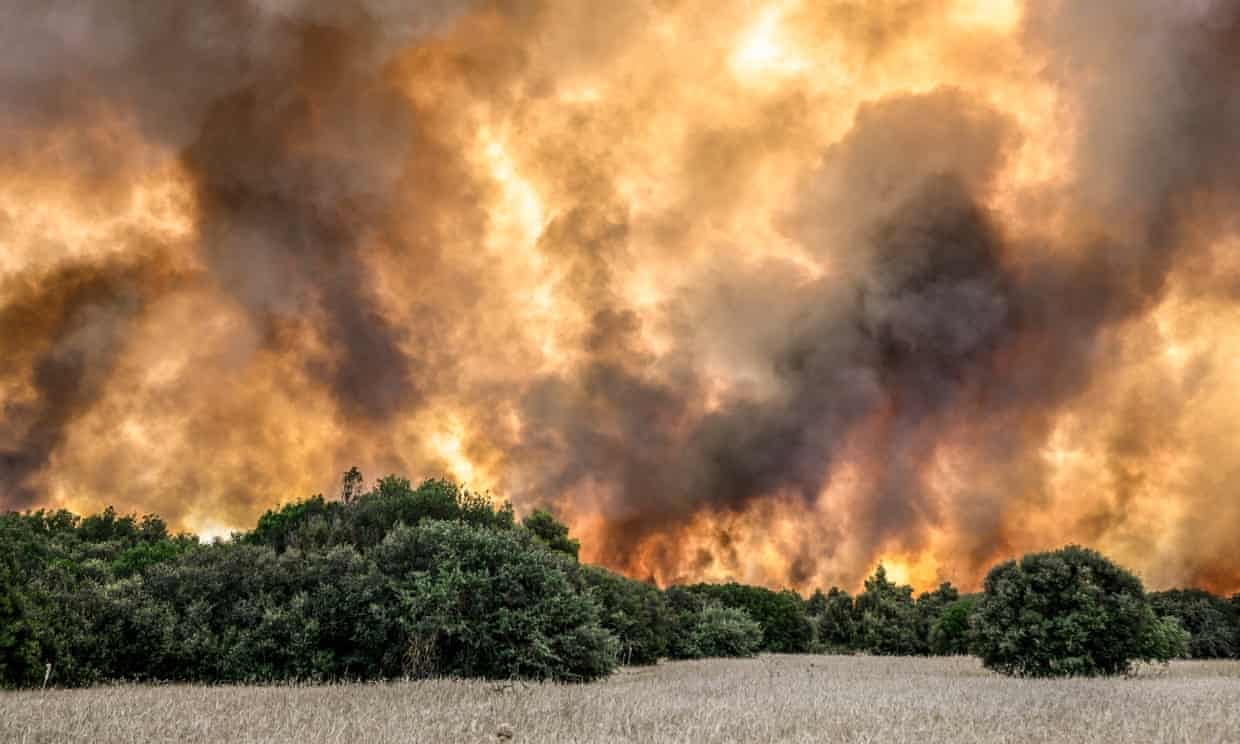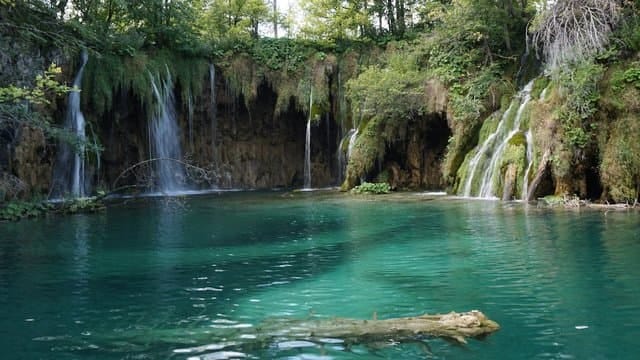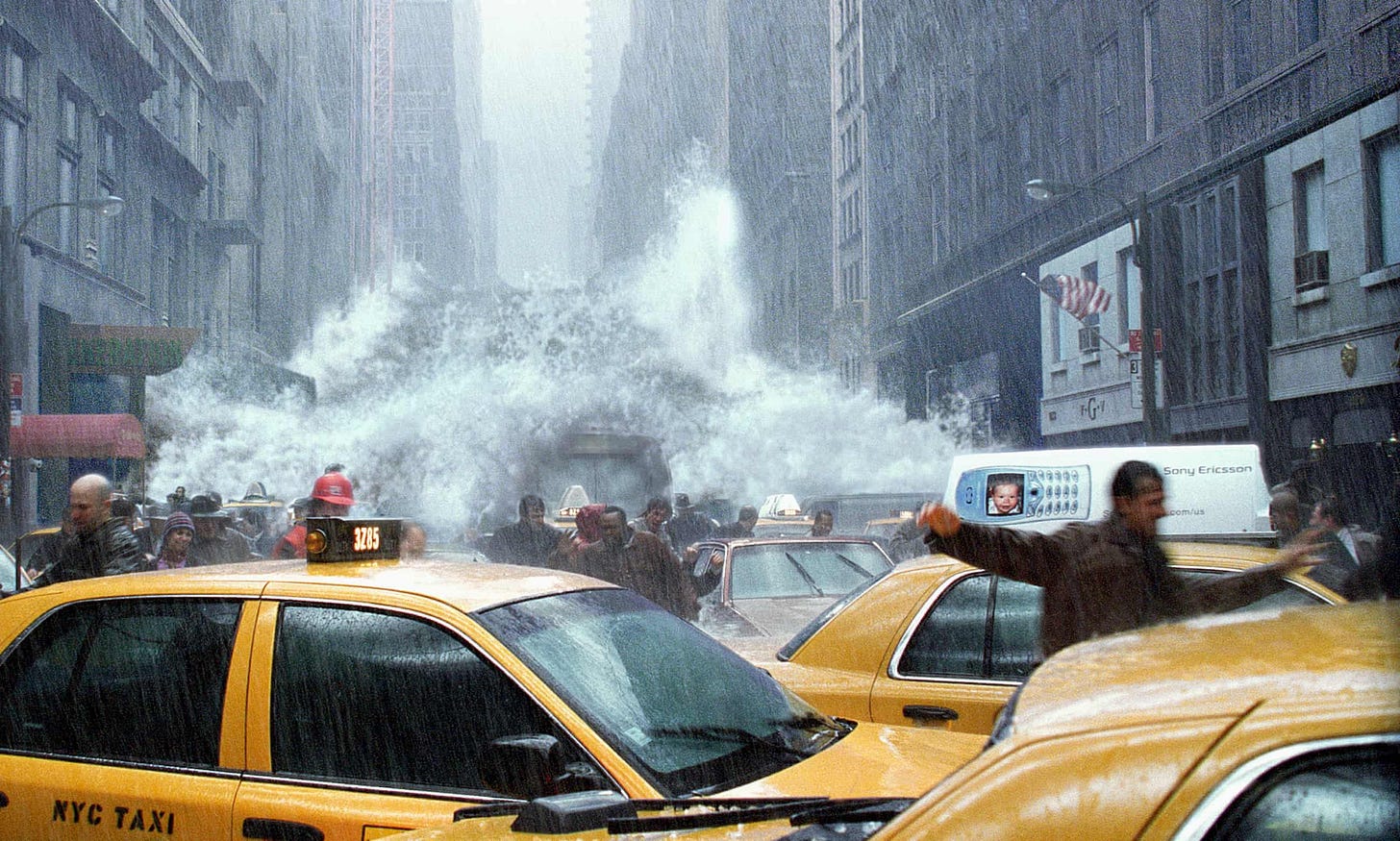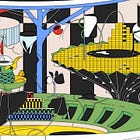Five Things Climate
Today is World Environment Day. Let's have a look at our climate and how we can stop the climate change!
Hi and welcome back to Five Things! This is a special edition of Five Things, focused on climate issues. We will continue with the normal programming on Friday with Five Things AI.
Ok, this newsletter might surprise you, but I think it is important to focus on our climate today. 52 years at the Stockholm Conference on Human Environment, the World Environment Day initiated. And it is safe to say that every since then, most of the warnings by scientists have been ignored or ridiculed. While lots of environmental laws have been passed globally, the temperature on earth is still rising and many people refuse to change their behaviours. Business leaders try to stall change for as long as possible as they fear their influence would fade in a new setup that doesn’t involve as much fossile fuels anymore and has a radically lower CO2 footprint.
The German Chancellor Olaf Scholz visited a flooded town in Bavaria this week and remarked that this was the fourth time this year he had to travel to regions with severe floodings in Germany. Floods of this magnitude are labeled “Jahrhundertflut”, floods that only happen once a century. It’s safe to say that this will be the new normal. We also need to talk about the impact on business if we do not change more drastically. I think that is always overlooked in discussions as people fear change and cannot grasp the potential that change will bring. But they also don’t look at what they stand to lose if they don’t change fast enough. The auto industry is one great example for that. China is producing EVs and German politicians and business leaders still debate whether this change is coming too fast. It’s not fast enough. At the same time, solar and wind energy is on the rise, while plenty of people still think this won’t work.
Today I found some data that showed that both the Baltic Sea as well as the North Sea are currently 5 degrees warmer than they should be at the end of May. I could go on and on with signs that the climate is changing, it is so plain for everyone to see. Even climate change deniers have to accept the results of scientific research from time to time.
Let’s have a look at five recent articles that deal with our climate and what we should do if we want to keep earth from overheating. No, it’s not a fun read, sorry.
Economic damage from climate change six times worse than thought – report
Let’s talk business here: “A 1C increase in global temperature leads to a 12% decline in world gross domestic product, researchers have found.” - if we want the world’s population to prosper, we need to make sure that the business environment is intact. In order to that, we have to assure an intact global environment and the countries who realize this first and act upon it, will come out stronger than their rivals.
The Stench of Climate Change Denial
“Climate denial was originally all about fossil fuel interests, and to some extent it still is. But it has also become a front in the culture war, with politicians like Ron DeSantis of Florida — who happens to be the governor of one of the states at greatest immediate risk — apparently deciding that even mentioning climate change is woke.” - this is a global phenomenon, unfortunately.
Groundwater is heating up, threatening life below and above the surface
“You might think groundwater would be protected from climate change, given it’s underground. But this is no longer the case. As the atmosphere continues to heat up, more and more heat is penetrating underground. There is already considerable evidence that the subsurface is warming. The heat shows up in temperature measurements taken in boreholes around the world.” - oh, more bad news for an overheating earth.
Can Capitalism Solve the Climate Crisis? Tom Steyer Thinks So.
“I think we’re at a point where the interest of business will be in providing sustainable answers, both because of the rules that government has put in, and the programs like the Inflation Reduction Act that are designed to say to people who are profit-oriented, “Build this. This is what our society needs.”
I think that business has to have frameworks from the government, and from, in effect, the will of the people to build the things that society needs. That’s how it’s supposed to work. That’s why I think the engine of getting this done will be capitalism, but it’s got to be within that framework. Carrots and sticks are critical.” - if it only were that easy.
The Day After Tomorrow at 20: a strangely prescient ecological warning
“Twenty years after its release, it remains a unique specimen: a climate disaster blockbuster that adheres to all the tenets of the genre, while also explicitly attributing its carnage to the greenhouse effect.” - let’s hope for a happy end in real life as well.
That’s it. Have a great Wednesday and go put some solar on your roof and ride your bike more! If you missed last Sunday’s edition of Five Things, have a look here:
— Nico






